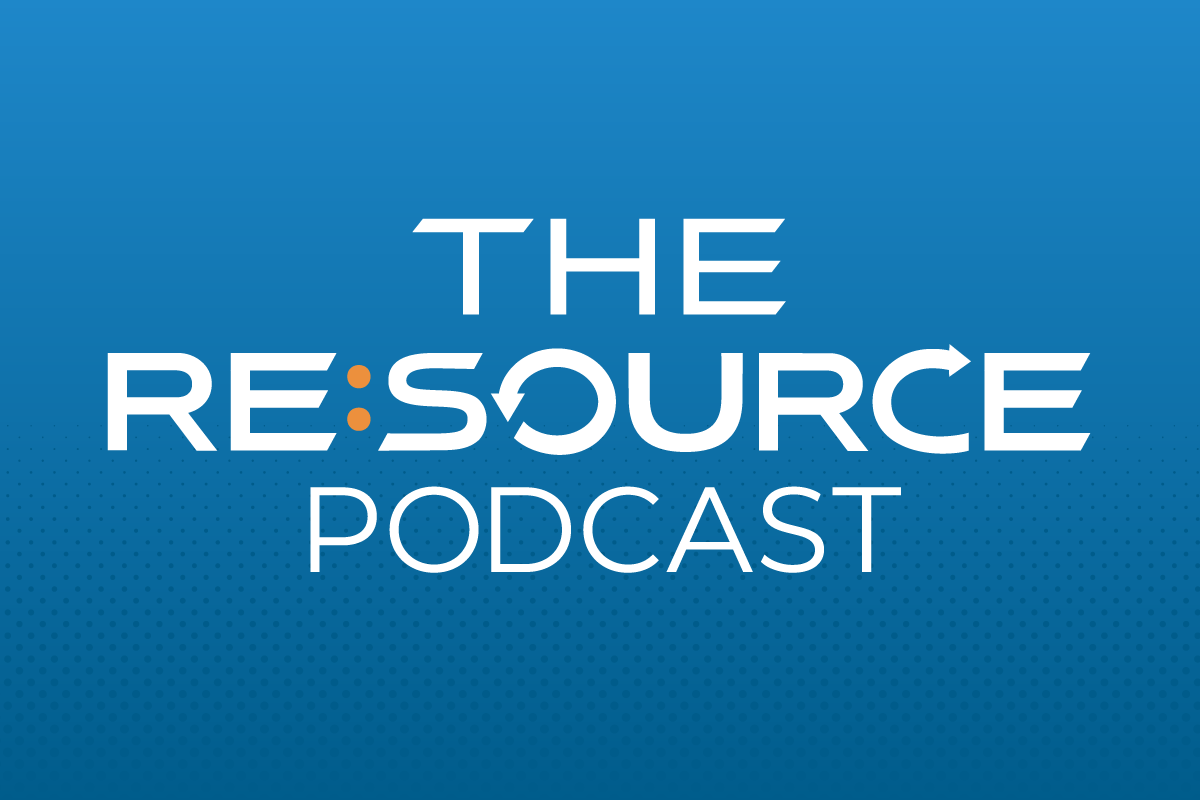
In this first episode of The Re:Source, Chris Kaasmann, Greenchip’s vice president of compliance, and Jeff Gloyd of Gloyd Recycling Solutions discuss E-Scrap Conference 2025 and industry trends for 2026.
Welcome to The Re:Source, a podcast for insights, strategies and stories from the world of materials management, recycling and the circular economy. Each episode features conversations with industry leaders, innovators and policy makers who are transforming the way we use, recover, redesign and rethink resources, from breakthrough technologies to successful programs and practical tips.
We’ll explore how materials move, how systems evolve and how a circular approach can drive environmental, economic and operational impact.
In this first episode, Resource Recycling sat down with Chris Kaasmann, Greenchip’s vice president of compliance, and Jeff Gloyd, founder of Gloyd Recycling Solutions to discuss the E-Scrap Conference 2025 and upcoming trends in the industry for 2026. Here’s an excerpt:
Stefanie Valentic: Jeff, you mentioned the “Brokers of Shame” report. Let’s talk a little bit about that, what reports like that mean and the impact to the industry. Let’s also talk about certification – pros and cons. Chris, if you’d like to start, I know you are on the panel for the “Brokers of Shame.” Can you summarize what this report was about and its impact on the industry so far?
Chris Kaasmann: “Brokers of Shame” was put out by e-Stewards, really the Basel Action Network, highlighting some information related to the shipment of whole unit electronic devices to primarily Malaysia and other developing parts of the world. It’s never, in my opinion, a good thing for the industry or for recycling when these types of reports come out, generally speaking.
People, industry, consumers, municipalities, government – what have you – always question whether recycling is real and whether it actually takes place. So, anytime there’s a piece of information that comes out that throws that into question, I think it hurts everybody and I think, especially when it comes to our industry, we need to double down on working together.
If we want to solve this particular issue, we need to have the standards working together. We need to have recyclers having good conversation, transparent conversation, with one another. Auditors need more education. I mean this, it’s easy to point the finger everywhere, but we need to take an all-in approach, look at every single sector and figure out how we can improve things so that these types of things don’t happen again.
Jeff Gloyd: The certifications – and there’s the two major ones, R2v3 and e-Stewards – are really intended to level the playing field so that companies that pay for and spend the time to meet the certification standards and have an understanding that we’re doing the right thing throughout the entire process.
The reality, what we saw from this report and I think if you spent any time in this industry, is that that’s just certainly not happening, and that the certification bodies themselves are really struggling to show the value that they’re providing to certified companies, and that’s a real challenge. It’s a challenge for the industry. It’s a challenge for those certification bodies, a challenge for the auditors that help move those certifications forward. But I’ll switch to the positive and that I think both of the certification entities recognize the challenge and they’re trying to address it and make improvements.
I’ll share that, both Chris and I sit on Leadership Council for the e-Stewards certification, and that’s all that’s being talked about is, how do we improve the certification? How do we make sure that companies that are certified are compliant, and how do we get back to that trust and that level playing field, which is really, as I mentioned, what it’s supposed to be?
More stories about Certification standards

